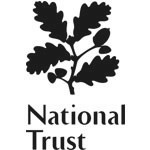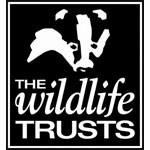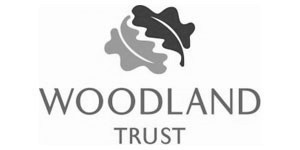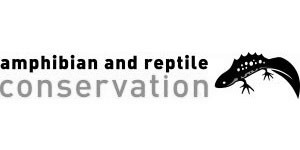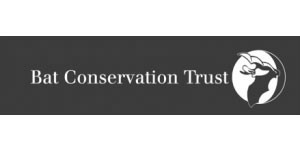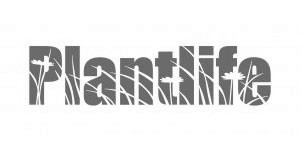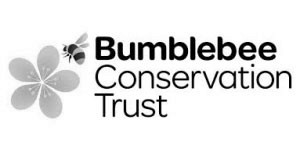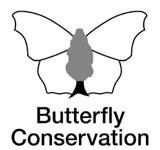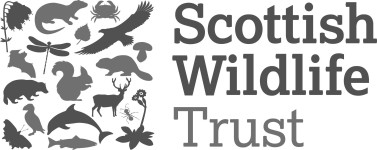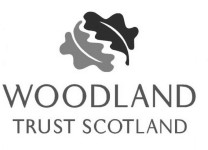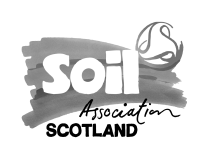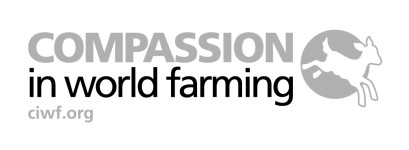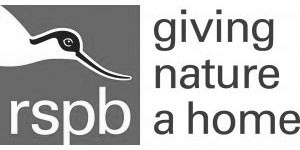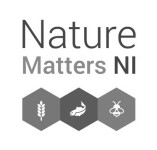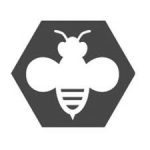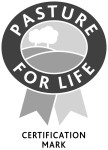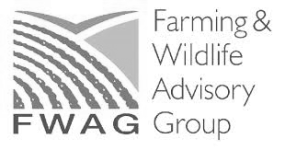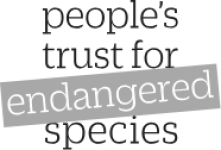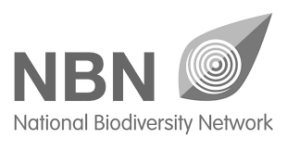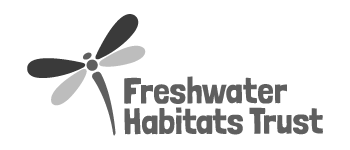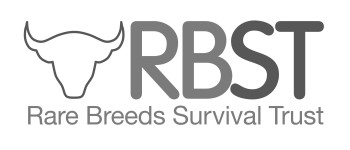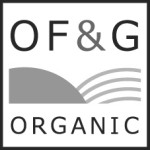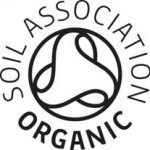Who We Are
The Nature Friendly Farming Network (NFFN) is a UK farmer-led network working to mainstream nature-friendly farming as the most sustainable way of producing food.
Ed Harrison
What is the Nature Friendly Farming Network?
The Nature Friendly Farming Network is a membership organisation led by farmers, working alongside other organisations and public supporters. Together, we are a strong voice for sustainable food and farming in the UK.
Our work is to support farmers at every stage of their journey towards nature-friendly farming. Through showcasing the experiences of farmers who are leading the way, we share knowledge that empowers those in transition to produce plentiful food. Nature-friendly farmers all over the UK are doing so in ways that mitigate climate change, reverse biodiversity decline and safeguard the future of UK agriculture.
Our mission is to take nature-friendly farming to a new level, making it mainstream.
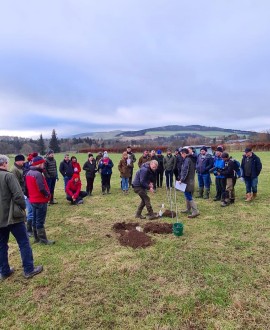
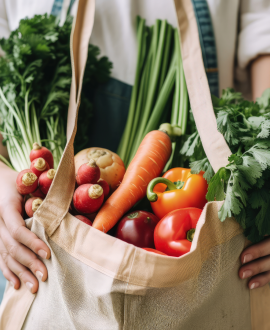
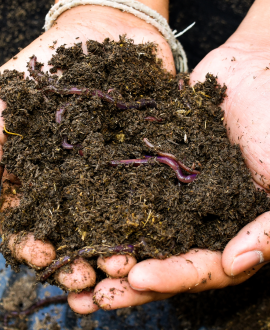
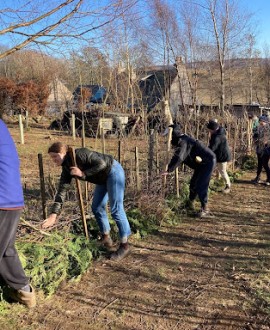
Our vision
Our vision is a future where farmers are empowered to put nature at the heart of farming, supported by policies that enable and drive this transition.
We want to see a farming future where:
All farmers can produce safe, healthy food and get a fair price for it
Our land will be productive for future generations
Our water and air are clean
A new international trade regime doesn’t expose farmers to the sort of cut-price competition that will drive us towards more harmful ways of farming both land and livestock
All farmers can access support for farming in ways that benefit nature
All farmers are rewarded for the public benefits they deliver through the management of multifunctional, ecologically resilient landscapes
All farmers play a major role in helping nature’s recovery
All farmers play a part in tackling climate change by preventing dangerous flooding and mitigating the worst impacts of drought
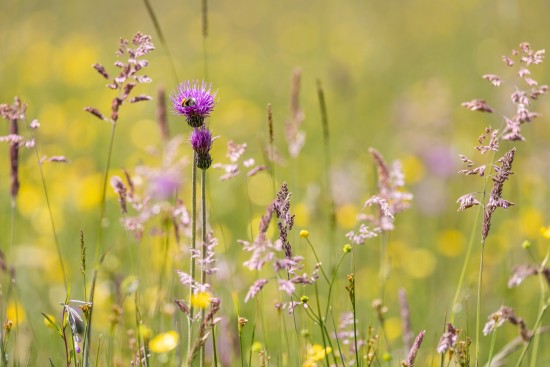
What we do
We unite farmers across the UK who champion how food and farming can positively influence change
We are committed to shaping food and farming policies that ensure fairer returns for farmers, improved access to sustainable food and greater stewardship of the environment
We share farm-level knowledge of whole-farm approaches that restore rural environments, regenerate ecosystems, protect biodiversity, act on climate change and offer greater resilience to natural or economic shocks
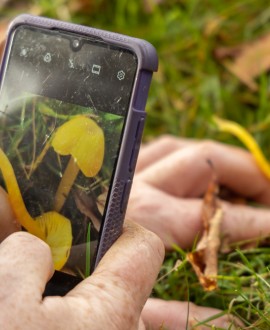
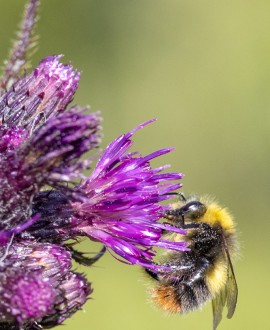
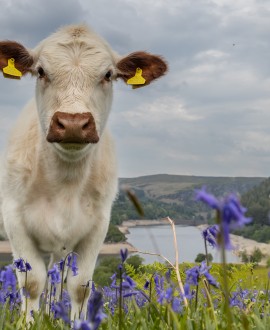
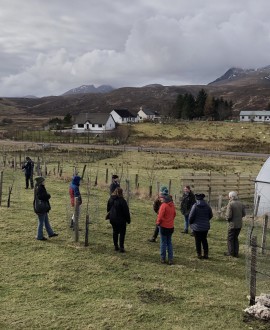
The challenges we meet
With 71% of UK land taken up by agriculture, farmers are the most important stewards of our environment. Without them, it will be impossible to meet the UK’s nature and climate goals. Right now in the UK, we are at a critical time both for the future of agriculture and the health of the environment.
Rising input costs, coupled with the effects of a changing climate, create a real challenge for farming livelihoods. At the same time, environmental degradation is impacting soil health and the wider ecosystems which support sustainable food production.
Many farmers are turning to alternative practices in search of new ways to improve their profitability by farming in harmony with nature. However, a shortage of knowledgeable peer-to-peer support is a barrier to transitioning to nature-friendly farming. At a policy level, there is a lack of understanding of the complex systems relating to sustainable food production.
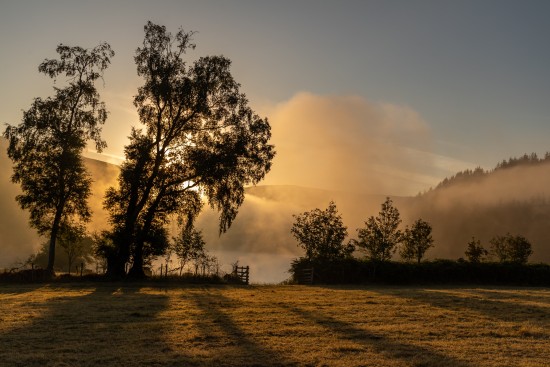
What are the benefits of nature-friendly farming?
Nature-friendly farming recognises that a farmer's job is to produce food sustainably while delivering multiple important outcomes such as:
mitigating climate change
supporting adaptation to extreme weather
safeguarding water quality
underpinning community resilience
revitalising local economies
Both practical and economically beneficial, nature-friendly farming with nature helps to better inform business decision-making and on-farm practices. It recognises that nature is a part of - and central to - long-term food production. In fact, evidence shows that nature-friendly farming can deliver our food needs on a large scale, as part of a more sustainable food system.
Nature-friendly farming benefits both farm business outcomes and the ecosystem. It reduces the need for inputs (like pesticides and fertilisers) because it is regenerative, circular and agroecological. Its low-input and low-waste system improves soil and water quality. Habitats such as flower-rich boundaries and margins are created, as land use is balanced between the needs of food production, nature and climate change mitigation.
Nature-friendly practices use different approaches suitable in different parts of the UK, helping to build the resilience of local farm businesses.
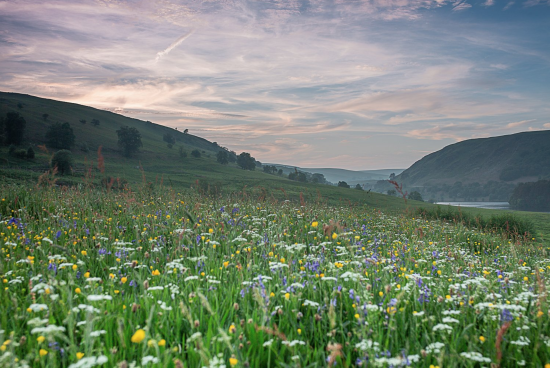
Water, soil and biodiversity aren’t just features of our landscapes - they’re the building blocks of how we feed ourselves, and their health is a precondition for viable farming. We can do many things to ensure our future food system is fair and sustainable, and our work helps make this possible.
Martin Lines, CEO, the Nature Friendly Farming Network
Meet the team
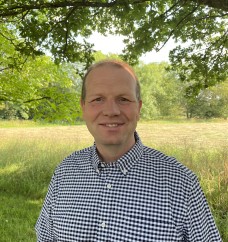
Martin Lines
Chief Executive Officer
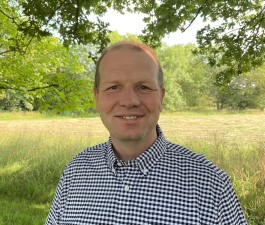
Martin Lines
Chief Executive Officer
Martin is a farmer and contractor in South Cambridgeshire, growing mainly arable crops on his family farm and rented land. He has a special interest in farm conservation management, currently running a SFI agreement and has Countryside Stewardship schemes on land he rents and manages. He also supports the delivery of Stewardship schemes for a number of other farmers. Martin is the NFFN Chief Executive Officer and hopes to see the network grow with like-minded farmers and land managers who will work together, sharing best practices and demonstrating what can be accomplished for nature and the environment while producing great produce.
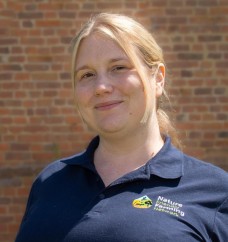
Cheryl Nicholson
Chief Operating Officer
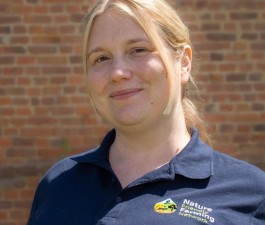
Cheryl Nicholson
Chief Operating Officer
Cheryl has worked with nature-friendly farmers since the inception of the NFFN in 2017. She has a BSc and MSc in biological sciences, specialising in conservation, and over 14 years’ experience leading and managing regional programmes and stakeholder engagement. Her previous roles include Area Conservation Manager for the RSPB, Marine Conservation Manager for the Northwest Wildlife Trusts and Public Health Programme Manager for the Dept of Health. She is passionate about farming with nature and supporting farmers to influence future agriculture, environment and food policy.
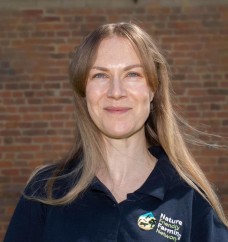
Ginny Cox
Head of Business Development
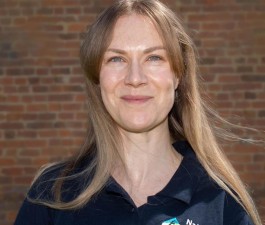
Ginny Cox
Head of Business Development
Ginny has worked in the Third Sector for over a decade across a range of roles in marketing, fundraising and project management. In her spare time she has undertaken study on nature-based solutions for climate resilience and has volunteered for some fantastic not-for-profits in a variety of roles, including campaigning and youth project delivery. In her role for the network she is working to drive strategic direction, developing and coordinating the plans to ensure the NFFN meets its objectives. She also manages the administrative support and major event coordination for the organisation.
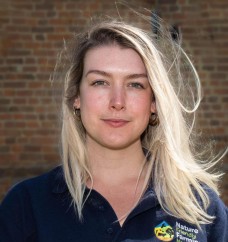
Alena Walker
Head of Communications (on maternity leave)
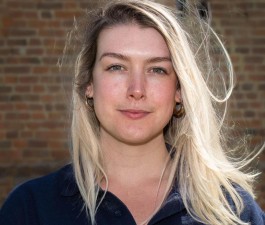
Alena Walker
Head of Communications (on maternity leave)
Alena is a communications and media specialist, having worked in PR and as a writer for independent magazines internationally. Her eclectic editorial and multimedia experience includes projects focused on food system change, cultural identity, sustainability and environmental advocacy. She was a finalist in the Mogford Short Story Prize in food writing and a Young Writer Delegate for the Irish Writers Centre and Irish Literature Festival Dublin. Alena works to amplify the NFFN’s voice in press and media, expand knowledge sharing between NFFN members and raise awareness of the ever-growing benefits that nature-friendly farming can bring to people, food and our environment. Alena is passionate about creating sustainable social and environmental change and she’s involved in local food growing projects in Northern Ireland.
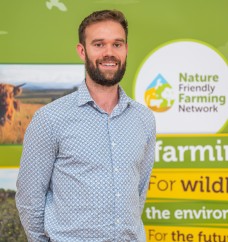
Phil Carson
Head of Policy
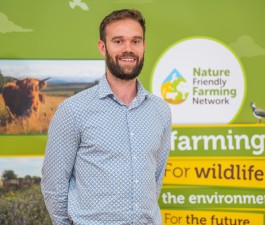
Phil Carson
Head of Policy
Phil is an experienced land use policy professional, with nearly a decade's experience in a range of areas including agricultural advice, conservation land management and sustainable land use policy. He is passionate about finding solutions to complex land use problems from policy development through to practical delivery. Phil hopes to increase the Network’s influence on land use policy decisions across the UK, to ensure they work for both farmers and the environment.
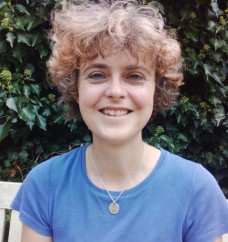
Laurinda Luffman
Head of Fundraising
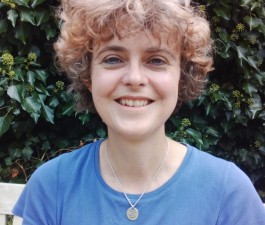
Laurinda Luffman
Head of Fundraising
Laurinda has worked with the RSPB for eight years and is the charity’s Head of Trusts & Foundations. Passionate about wildlife and gardening, Laurinda is opening a new community growing farm in Bedfordshire with other directors. She believes that every nature-friendly farm, big or small, rural or urban, can make a difference, helping to grow plentiful and healthy food, improving people's well-being and providing areas where wildlife can thrive.
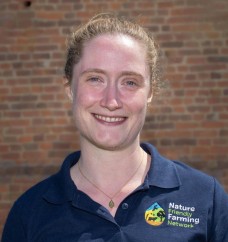
Lottie Alves
England Manager
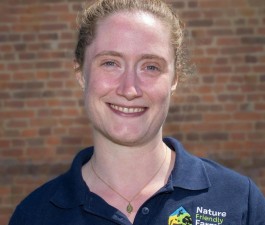
Lottie Alves
England Manager
Lottie is a skilled agricultural consultant, with nearly ten years’ experience working within the industry. After graduating with a degree in Biology, she took a role as a sustainable food and farming consultant at ADAS, working with retailers and the government on a range of projects covering sustainable arable crop production and food chain sustainability. Lottie later worked as an agronomist, covering arable and horticultural crops, where she promoted and actively incorporated environmental initiatives onto farms she worked with, and gained greater knowledge of some of the practical challenges of farming. Lottie is interested in the role that farmers can play as both food producers and nature custodians, and is passionate that farmers receive the support they need to do this.
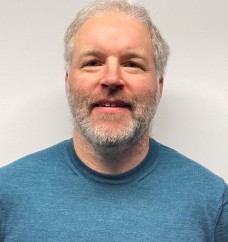
Stuart Harris
SE England Sustainable Farming Officer

Stuart Harris
SE England Sustainable Farming Officer
Stuart has been a volunteer farmland bird and butterfly surveyor since 2016 for the BTO and the RSPB. In 2021, he was the RSPB’s Kent Research Assistant on the first National Turtle Dove Survey, covering eighty 1km 2 grid squares across rural Kent and East Sussex. He has a BSc in Ecology & Conservation and MSc in Ecology from Canterbury Christ Church University and is passionate about seeing our agricultural landscapes transformed into more biodiverse habitats supporting our declining farmland bird species, whilst providing support to farmers in influencing future agriculture, environment and food policy. His previous role with the Environment Agency has given him valuable experiences in understanding the current issues and pressures on the countryside and balancing the needs of all who work and live in it.

Euan Ross
Scotland Manager

Euan Ross
Scotland Manager
Euan Ross is an experienced policy and research professional with expertise in agriculture and land use. He's worked at DEFRA on the Environmental Land Management Schemes, smaller research companies that focus on agricultural transitions and animal welfare as well as the United Nations Convention on Climate Change and the UN's information Centre. Ross enjoys developing, and advocating for, policies that are both feasible for land owners and ambitious for the environment, and he hopes to amplify NFFN's voice in Scotland to build food and farming systems that work for both people and the planet
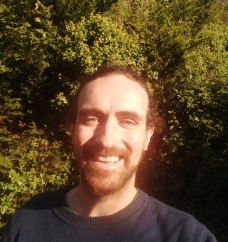
Cormac Dolan
Northern Ireland Manager
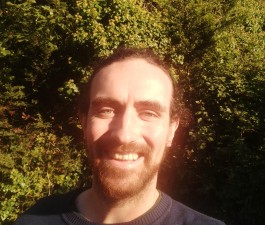
Cormac Dolan
Northern Ireland Manager
After studying and working in the Scottish Highlands for seven years including work with the Woodland Trust, Isle of Rum Nature reserve and Nevis Landscape Partnership, Cormac returned to his home of Northern Ireland two years ago. He found work with the National Trust on their Mourne Wildfire Recovery Project followed by time as Area Ranger at Castleward, both roles included working with tenant farmers to use conservation grazing as a means of protecting rare ASSI habitat. Cormac has always had a interest in farming, growing up he raised small numbers of cattle, sheep and chickens and at 19 he worked on a large cattle station in Australia.
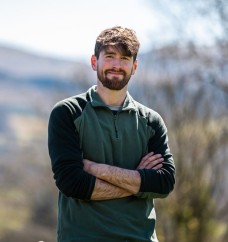
Rhys Evans
Wales Manager
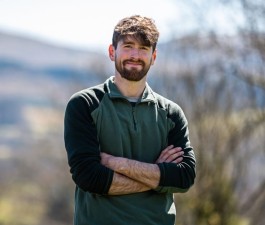
Rhys Evans
Wales Manager
Rhys Evans is NFFN Cymru’s Sustainable Farming Lead. Along with his parents and brother, Rhys is involved with running the family farm in Rhyd-y-main near Dolgellau, North Wales. They have a flock of Welsh Mountain sheep and pedigree Welsh Black cattle which are used to manage roughly 700 acres of hill and mountain land. As well as farming, Rhys worked as a Conservation Officer with Natural Resources Wales, working with farmers on developing nature conservation projects in the Meirionnydd area. He also brings policy experience to the role, having worked as a Food and Farming Policy Officer at RSPB Cymru. His experience of working in nature conservation as well as a hands-on farmer is a perfect combination for this role. Rhys’s mission is to demonstrate how food production and nature can, and must, go hand in hand.
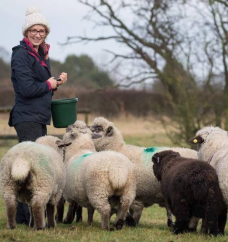
Katie Anderson
Communications Manager [maternity cover]
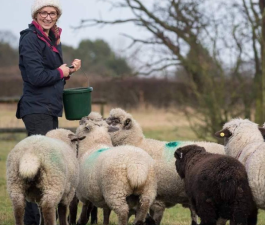
Katie Anderson
Communications Manager [maternity cover]
Katie has worked in marketing for over a decade with specialties in digital communications and social media management. Her background in agriculture began in 2013 and includes a variety of roles from running a pasture-fed, conservation-grazing beef cattle herd and contract lambing commercial sheep flocks, to managing a large arable partnership and its diversifications. Katie joined the NFFN’s Communications Team to help expand the reach of the network’s messaging and promote nature-friendly farming to a wider audience. She supports Alena and the wider team; namely with producing email newsletters, creating social media campaigns and writing blog content. She works to show that farming in a nature-friendly way not only positively impacts our environment, but is also commercially viable and essential for any sustainable farming business.
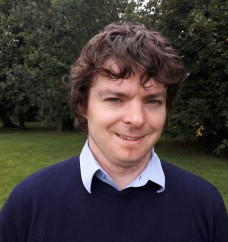
Andrew Nowell
Press Officer
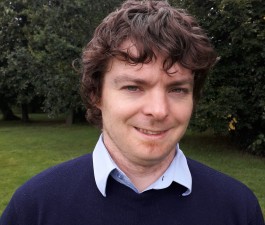
Andrew Nowell
Press Officer
Andrew has joined the NFFN as a press officer and is keen to help spread the word about the organisation and amplify key messages about nature-friendly farming in the national, regional and local media. He has more than a decade of experience in the local press in the North West of England, working for both daily and weekly papers and being part of the launch team for a new digital website. Andrew is passionate about issues related to climate change, sustainability and the protection of the natural world and has always tried to include these subjects in his professional life. He is delighted to have made the move to the NFFN and to have the chance to work on nature-friendly farming.
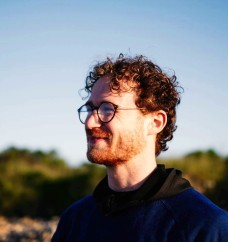
Adam Robertson Charlton
Digital Communications Officer
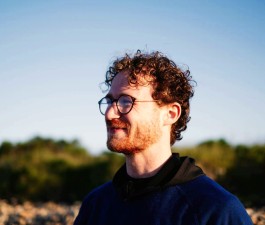
Adam Robertson Charlton
Digital Communications Officer
Adam is an experienced environmental communicator. His multimedia background includes PR for nature restoration projects, content creation for invasive species programmes, and writing for independent media.
Adam’s academic background is in International Journalism. He has reported on the relationship between people and the natural world in the UK, Ukraine, and the Middle East. This includes written content on food production in refugee camps and films about nature restoration in East Sussex.
Combined with his experience supporting nature-friendly farming in the Orkney Islands, this has made him passionate about sustainable agriculture and the role that storytelling can play in advancing it.
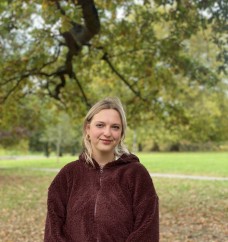
Mary White
MP Engagement Officer
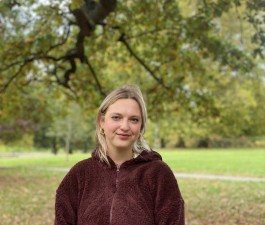
Mary White
MP Engagement Officer
Mary studied Liberal Arts at the University of Bristol, specialising in agricultural and environmental studies in her final year. Her dissertation was based on industrial agriculture and its associated issues of connectivity to land, food and communities. She then went on to work in political research, working with MPs to deliver written responses to national campaigns and constituent correspondence.
While in this position, she undertook research related to DEFRA, with a focus on agriculture. Her interest in nature-friendly farming piqued during the first lockdown when she became more aware of the resilience of local food systems in times of global crisis. From there, the interconnectedness of food, climate and social security became clear. Nature-friendly farming will play a critical role in alleviating a multitude of national and global issues; as such, Mary’s aim at the NFFN is to demonstrate this to MPs and decision-makers and influence them to act on it now.

Robert Lingard
Parliamentary Liaison

Robert Lingard
Parliamentary Liaison
Robert is the Managing Director and Founder of White Stork Consultancy Limited, a pioneering public affairs, communications, and government relations consultancy, offering high-quality bespoke advice and support to businesses, organisations and charities operating across the United Kingdom – including the NFFN. With more than 10 years of experience working at the centre of British politics in Westminster; Robert started out working for a Member of Parliament and then Government Minister, as well as extensive experience with the House of Lords, before going on to deliver public affairs for two leading charities – the RSPB and the Holocaust Educational Trust. As a lifelong environmentalist, Robert is proud to support NFFN’s political advocacy, to ensure that as many stakeholders and policymakers as possible put nature-friendly farming at the heart of what they do.
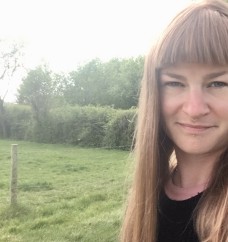
Camilla Barnard
Administration Officer
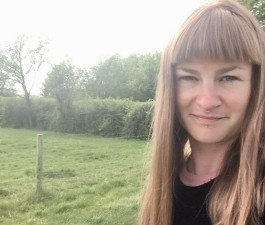
Camilla Barnard
Administration Officer
Camilla joined the NFFN from a background in publishing - mostly editorial and production - and some marketing communications. She has additional experience managing a large team in a premium indoor bouldering facility. She is delighted to join the NFFN, as her major passion is how we can live more sustainably and conserve our natural world. In her free time she studies bumblebee ecology and conservation and volunteers with conservation groups to create leaky dams, hedgerows, and plant trees. She’s happy to now be making a difference in nature-friendly farming in her professional life.
Steering Groups
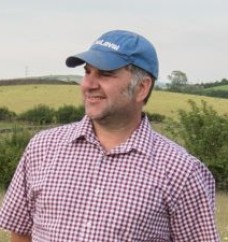
James Robinson
England Chair
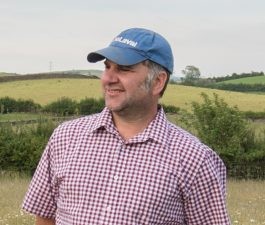
James Robinson
England Chair
James is the fifth generation of his family to farm at Strickley, a 300 acre all grassland organic dairy farm near Kendal, south Cumbria. The farm carries 130 Dairy Shorthorn cows plus 120 youngstock, all cattle are homebred and are also a closed high health herd. Strickley has been part of an environmental stewardship scheme since 1991, when a Hedgerow Incentive Scheme was started to improve and protect the farm’s seven miles of ancient hedgerow. Those hedgerows now make fantastic corridors of life, surrounding the 60 small fields which make up the farm and connect ancient woodland with habitat rich becks, a two-acre pond and newly created wetland areas.
Nature plays a big part in the farm’s decisions and everything possible is done to enhance the biodiversity of all the habitats. In 2022 James and his family were presented with the highly coveted ‘Silver Lapwing’ award, something the whole family is incredibly proud of. The farm is currently in higher-tier and also a mid-tier scheme. Local schools benefit from free visits to Strickley and enjoy pond dipping, hedgerow safaris and learning about dairy production, among other things. James is also keen to learn from outside organisations and works closely with The Cumbria Wildlife Trust and South Cumbria Rivers Trust. He hopes to build on these relationships for the benefit of everyone.
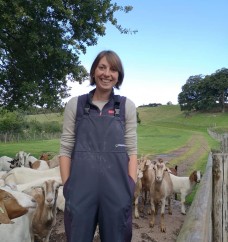
Holly Purdey
England Vice Chair
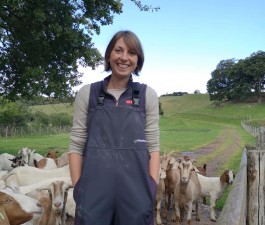
Holly Purdey
England Vice Chair
Holly was brought up on a small organic dairy farm in Somerset. That foundation allowed the ethos of working in partnership with land and nature to shape the foundations of career choices. Holly has worked for Somerset Wildlife trust and The National Trust before returning to farming as a tenant farmer. She farms 200 acres of permanent pasture and herbal lays with cattle, sheep, goats and chickens.
The farm has developed over the past five years to create a farming model that is aiming to be resilient to future climate change, with planting of wood pasture, silvopasture, water retention work and restoration of grasslands. The farm is driven to reverse biodiversity decline that has happened and is engaged in HLS and SFI Pilots. The farm produce meats for their farm shop and seasonal food events, alongside partnership working with Good Vibe Veg, a CSA veg scheme now based on the farm. Holly also delivers on farm education sessions for local schools and community groups to encourage a greater involvement and understanding in our landscapes for all.
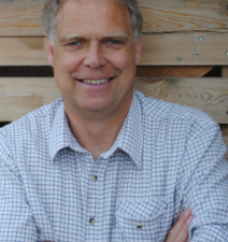
Anthony Curwen
England Steering Group
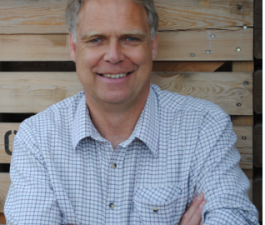
Anthony Curwen
England Steering Group
Anthony runs Quex Park which is a country estate in Kent. The estate grows wheat, oilseed rape, oats, beans, potatoes and maize silage, contract farms and has 60 hectares under environmental schemes. A programme of diversification was also implemented which includes children’s soft play centre, craft village, adventure golf, maize maze, farmshop, restaurant, garden nursery, forest school and paintball as well as events ranging from classic car days to music festivals. He believes passionately that farming and conservation must have a joint approach and it is essential for the future that the public of all ages need to be informed and enthused about the countryside and its importance for food production and wildlife. He has previously been the Kent NFU chairman and been Trustee Board member of the Kent County Agricultural Society.
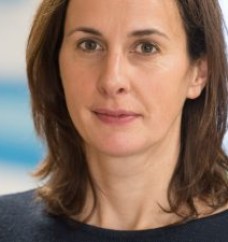
Nic Renison
England Steering Group
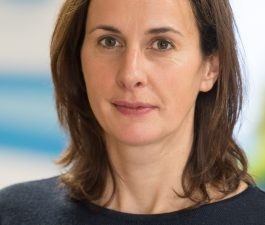
Nic Renison
England Steering Group
Nic originates from a dairy farm on the Welsh Borders and spent her first ten years working within family business. The simplicity, integrity and honesty of that cycle and its value to the producer, environment and consumer hasn’t left her conscience. After moving to Cumbria to work with milk recording then animal drugs, she met her husband Paul, latterly moving to Cannerheugh in 2012 with their children. Nature and farming create the heart of their business. After working for AHDB, Nic is now embarking upon developing the farm business full time including the egg mobile, direct sales of meat and starting a glamping enterprise.
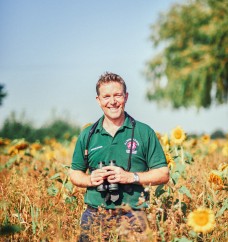
Patrick Barker
England Steering Group
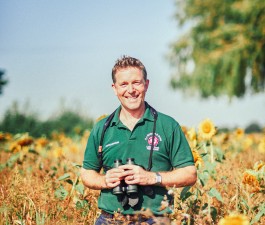
Patrick Barker
England Steering Group
Patrick is a farmer and conservationist from Westhorpe in Mid-Suffolk. His 533ha family farm is a LEAF Demonstration Farm, an AHDB Strategic Farm and they are past winners of both the Farmers Weekly Countryside Farmer of the Year and FWAG’s Silver Lapwing award. Conservation is integral to the farm, they have a Countryside Stewardship Higher Tier scheme and Patrick’s ethos is to farm in modern, productive ways while having a farm full of wildlife. Patrick is a BTO licensed bird ringer and an area coordinator for the Suffolk Community Barn Owl Project.
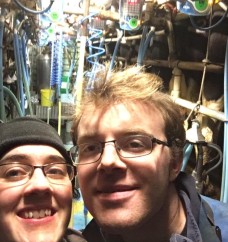
Jenny Allan
England Steering Group
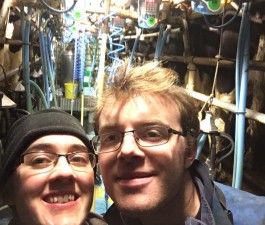
Jenny Allan
England Steering Group
Jenny lives in North Dorset and helps to run her partner's dairy farm. The family milk 150 British Friesian dairy cows on an all-year-round system in a closed herd. All young stock are kept as either replacements or are raised for beef stores. The farm sells their milk to Arla and also through an on-farm vending machine and to local cafes. Farming alongside nature is the priority, producing nutritious high-quality food while preserving and enhancing the habitat on the farm. The farm is part of a Countryside Stewardship scheme including buffer strips, herbal leys, low input grassland and particularly focusing on hedgerow rejuvenation and ancient woodland preservation. The farm is also a member of the Nadder Valley Cluster group and is looking to become LEAF mark accredited over the next year. The farm has also engaged with the general public through Open Farm Sunday for the last few years. Outside of the farm, Jenny is a farm vet specialising in dairy cows and has an interest in sustainable parasite control in livestock.
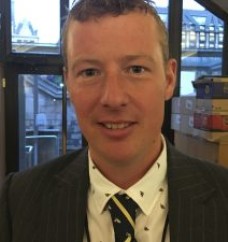
David Lord
England Steering Group
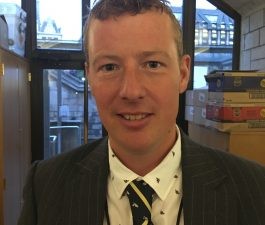
David Lord
England Steering Group
David manages the farming side of his business on the Northeast Essex coast, farming approx. 750ha of mixed soils but predominantly heavy London Clay. His farming system revolves around soil conservation and regeneration using cover cropping, diverse rotations and direct drilling to reduce inputs and improve biodiversity on the land he farms. His farm is also in HLS, and neighbours SSSI salt marsh owned by Essex Wildlife Trust, so he sees a lot of interesting bird life and a variety of habitat on the farm. David is a strong supporter of independent science and farmer led decision making. He is currently chairman of Colchester branch NFU, and also a steering group member for the AHDBs Eastern strategic farm.
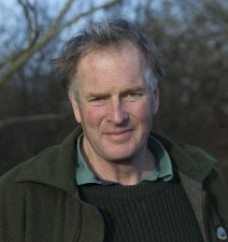
Martin Hole
England Steering Group Advisor
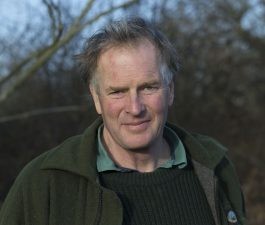
Martin Hole
England Steering Group Advisor
Martin farms with his family at Montague on the western edge of the Pevensey Levels in East Sussex. Two thirds of the land falls across grazing marshes, managed to restore wetlands for nesting Lapwing and Redshank and a complex of damp and herb-rich organic pasture. He looks after a flock of some 850 Romney ewes and a mixed breed beef herd of Sussex and Angus cattle.
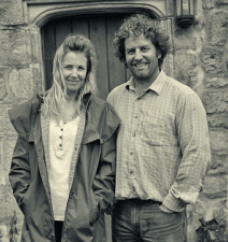
Neil Heseltine
England Steering Group Advisor
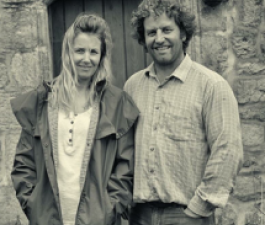
Neil Heseltine
England Steering Group Advisor
Neil was born and brought up at Hill Top Farm, Malham in North Yorkshire, where he now farms with his partner Leigh. In 2003, as part of a conservation grazing scheme he re-introduced 20 Belted Galloway cattle to join the Swaledale sheep flock. This proved to be a defining time for Neil in terms of ethos and mind-set, as he sought more sustainable and environmentally friendly production methods.
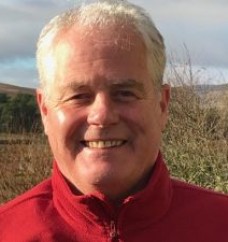
Chris Clark
England Steering Group Advisor
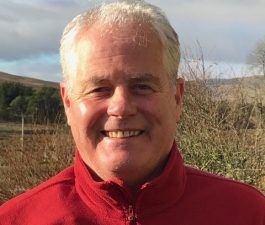
Chris Clark
England Steering Group Advisor
Chris and his wife Fiona have recently moved to Exeridge Farm, Oakfordbridge, Devon, a new and exciting challenge involving ancient woodland and hay meadow restoration and creation of wildlife ponds. Previously they owned and managed Nethergill Farm in the Yorkshire Dales. They built an eco-hill farm business with a sustainable added-value meat activity, an educational and field study facility and eco-tourism holiday lets.
Chris is a partner in Nethergill Associates, a business management consultancy currently assisting with the conjecturing and management of future farming uncertainties in all four countries within the UK. He is co-author of ‘The Less is More’ report commissioned by the RSPB, National Trust and Wildlife Trust. A former farm tenant and farm manager, Chris now has thirty years of business management experience. Nethergill Associates has expertise in financial management, marketing and farm business planning
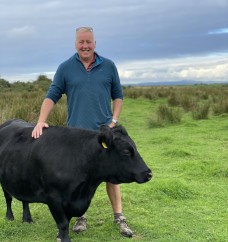
Stephen Alexander
NI Chair
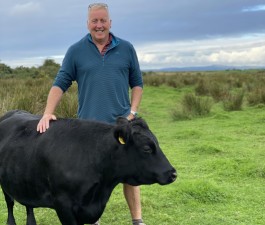
Stephen Alexander
NI Chair
Stephen and his family run a small herd of Pedigree Dexter cattle on the shores of Strangford Lough near Greyabbey and on tenanted National Trust ground at Groomsport, County Down. They have introduced a range of regenerative farming practices in a desire to farm with nature, and sell their high quality, affordable beef through direct selling and attending local food markets. Their cattle have won numerous awards at agricultural shows and they sell their pedigree livestock to other Dexter farmers. They are NFFN members and certified Pasture For Life Beef farmers.
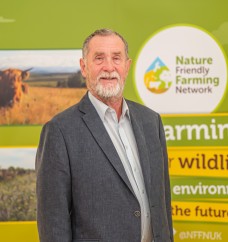
Michael Meharg
NI Vice Chair
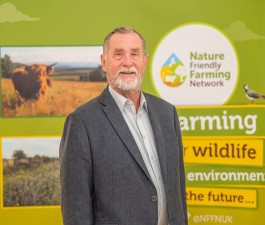
Michael Meharg
NI Vice Chair
Michael Meharg farms a 250ha suckler cow enterprise in county Antrim which includes conservation on a number of protected sites in NI. Passionate about the environment and rare breeds and with a background in ecology, Michael facilitates work with farmers in the Lough Neagh area Environmental Farming Scheme, focusing on delivering for priority habitats and breeding waders. Michael is interested in how the public and the market can better support nature-friendly farming produce across Northern Ireland.
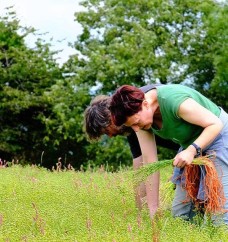
Helen Keys
NI Vice Chair
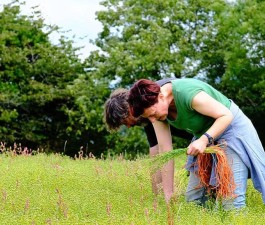
Helen Keys
NI Vice Chair
Helen and husband Charlie farm 50 acres in rural Tyrone with an ever-increasing mixture including flax (for fibre), oats, potatoes, apples and pears. They are the first commercial producers of Irish grown linen in forty years. Helen is a co-founder of Source Grow, an online platform to help farmers decide what to grow to suit their soil and local market demand. It allows restaurants and retailers to place orders with multiple growers for delivery within two days. Helen is also an Entrepreneur in Residence at Queen's University Belfast and an Innovation Broker for the Water Innovation Network, working to create nature-based solutions to improve water quality in the Ballinderry Catchment.
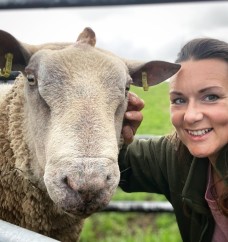
Bronagh O’Kane
NI Steering Group
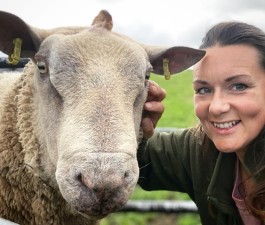
Bronagh O’Kane
NI Steering Group
Three years ago Bronagh O’Kane returned to the family farm in County Tyrone after a career in the Royal Air Force. Since then, Bronagh has made it her mission to improve the financial resilience of the farm by restoring its soils. Bronagh has trialled a range of innovative techniques including the use of compost and worm castings to bring the soil back to life, reduce dependency on inputs and build livestock health. Bronagh was recently recognised as Farming Life’s Young Farmer of the Year in 2022.
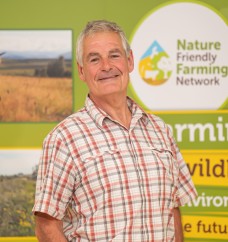
Tim Morrow
NI Steering Group
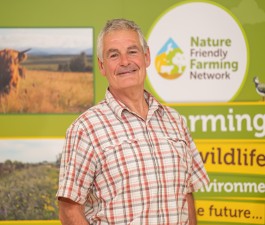
Tim Morrow
NI Steering Group
Tim Morrow farms at Streamvale Farm, a dairy farm situated in the Castlereagh Hills above Dundonald. Tim has worked on the farm since his return from a stint at Newcastle University in 1980.
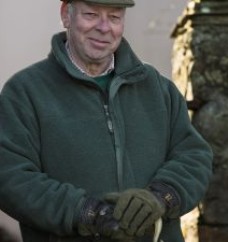
David Sandford
NI Steering Group

David Sandford
NI Steering Group
David is an arable farmer & passionate about the environment. He was the Purdey Gold Award Winner 2016, Northern Ireland Wildlife Farmer of the Year 2015 & RFS Farm & Small Woodland Award joint winner 2021. David is also a committee member of the management body for the Strangford and Lecale AONB and advisory member for the Strangford Lough Marine Protected Area.
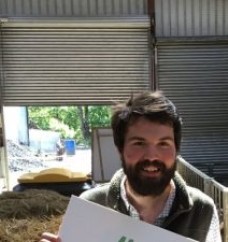
Charlie Cole
NI Steering Group
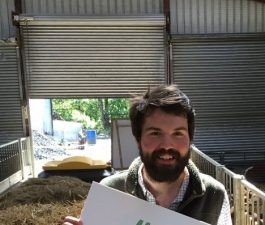
Charlie Cole
NI Steering Group
Charlie Cole a first-generation farmer who manages Broughgammon on the North coast of Antrim. The farm, famous for its award-winning rose veal and goat burgers, has been championing sustainability and the principle of ‘forward-thinking farming’ since 2012. Broughgammon is a mixed system aiming to demonstrate high welfare standards, environmental stewardship resilience and profitability. Charlie is a passionate advocate for locally produced sustainable food, highlighting that nature-friendly farming can play a key role in addressing many of the current problems facing food and farming at present.
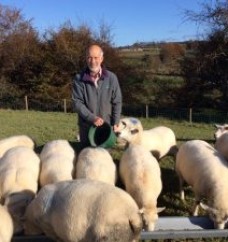
David Ford
NI Steering Group
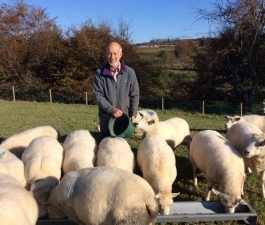
David Ford
NI Steering Group
After retiring from a long career in politics, David has more time for farming. His wife, Anne, and he operate a certified organic beef and sheep system on their small farm in County Antrim. They celebrated David’s ‘retirement’ by planting over 400 metres of native hedgerow and are now watching it grow. David believes that nature-friendly farming can play a pivotal role in providing solutions to a number of the environmental challenges we face at present. It is pivotal to halting biodiversity loss as well as helping face the climate challenge.
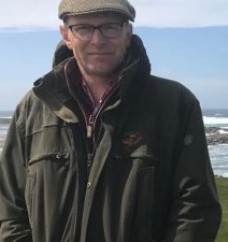
Tony Johnson
NI Steering Group
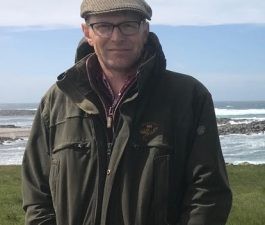
Tony Johnson
NI Steering Group
Tony Johnston is a Chartered Forester who runs the largest Christmas Tree farm in Northern Ireland. As a forestry agent he manages woodland for over 100 private and corporate landowners. He sits on the DAERA RDP Monitoring Committee, Plant Health Stakeholders Group and is the Confederation of Forestry Industries representative with the Forest Service Grants and Regulations Branch, focusing particularly on grant scheme development. He was a runner-up in the 2019 NI Farmer of the Year award.
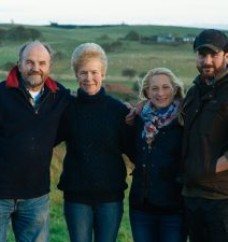
Denise Walton
Scotland Chair
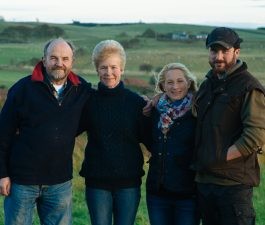
Denise Walton
Scotland Chair
Denise Walton and her family took over Peelham Farm in 1993. They farm to encourage birds and pollinating insects to live on the land. They converted to organic following the CAP reform of 2002, which facilitated funding. They restored hedges and fence lines, making sure they connected so birds and wildlife can use them as a food source or for protection from predators. Denise says there needs to be a balance between productivity for livelihood and productivity for wildlife, which is why grant aid is important.
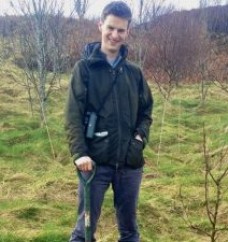
Phil Knott
Scotland Vice Chair
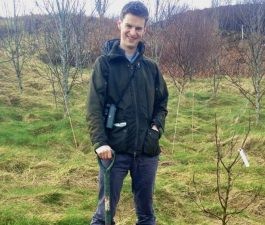
Phil Knott
Scotland Vice Chair
Phil Knott is a crofter on the Sleat Peninsula on the Isle of Skye. Phil lives with his partner and daughter on a 3ha wooded croft. He has come to crofting from a different angle to most, that of being a wildlife and land management expert but with no direct farming experience. His knowledge in flora, fauna, geology and soil has given him a good grounding and makes him look at the land in different ways to others. Being a wildlife tour leader has taken him all over the world, as well as to every corner of Scotland, especially the Highlands and Islands where he has studied all of the different farming practices.
He moved to Scotland in 2004 and has always wanted to manage his own piece of land, it took over ten years to find the right spot, but it was worth waiting for. Pockets of land are hard to get hold of in the Highlands of Scotland, but crofting does give present an opportunity to get your foot on the ladder.
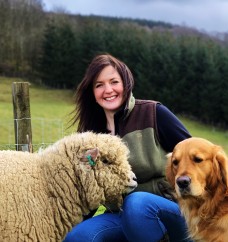
Ruth Ashton-Shaw
Scotland Steering Group
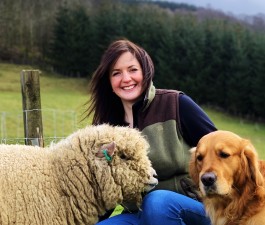
Ruth Ashton-Shaw
Scotland Steering Group
Ruth Ashton-Shaw is an organic and regenerative farmer working with native livestock breeds to produce high-quality meat, eggs and wool in Dumfries and Galloway Scotland. Ruth is a new entrant farmer and has owned and run Low Auldgirth, a 30-acre farm with an additional 50 acres of grazing, for the last eight years. In this time she’s focused on developing new nature-friendly practices and approaches to effectively develop a farm business which is both profitable and sustainable. Ruth prides herself on her ability to challenge the ‘norm’ and has become a passionate champion of sustainable and local food systems. Ruth has appeared on both regional and national TV discussing some of farming’s most challenging matters alongside championing change for small producers throughout Scotland. She is always happy to listen, learn and discuss every aspect of food, farming and nature, as she believes it’s the most important industry with the power to effect change on a local, national and global level.
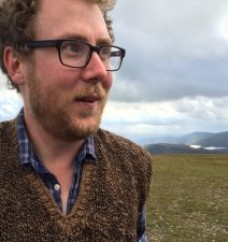
Patrick Laurie
Scotland Steering Group
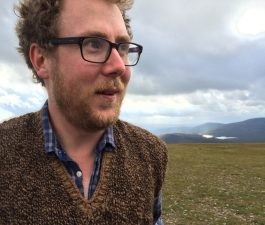
Patrick Laurie
Scotland Steering Group
Patrick Laurie farms at Culkeist, near Dalbeattie. A small number of pedigree Riggit Galloway calves were bought in 2015, and this has grown into a suckler herd which grazes at Culkeist and on surrounding moorland in East Galloway. Patrick worked as a project manager at the Heather Trust for eight years, running their communications strategy and delivering advisory support on issues such as peatland restoration, heather beetle, black grouse conservation and marginal grazing for moorland and hill farmers across the UK.
In 2018, he moved to Soil Association Scotland to deliver their Farming with Nature program, funded by KTIF, RSPB and Scottish Water, looking at issues which ranged from grassland improvement to bracken control and the conservation of lapwings. Now working freelance, Patrick retains a range of clients across Scotland, providing support and advice for estates, farms and upland businesses. He is currently engaged in setting up The Galloway Hills Network, a farmer-led group designed to explore innovation and best practice in upland farming.
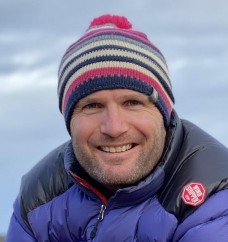
Johnnie Balfour
Scotland Steering Group
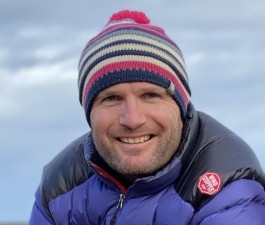
Johnnie Balfour
Scotland Steering Group
Bio coming soon!

Becci Barr
Scotland Steering Group
Becci Barr
Scotland Steering Group
Bio coming soon!

Stuart Mitchell
Scotland Steering Group
Stuart Mitchell
Scotland Steering Group
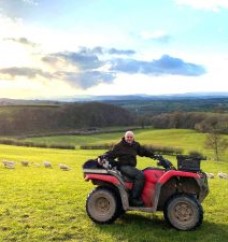
Hywel Morgan
Wales Steering Group Chair
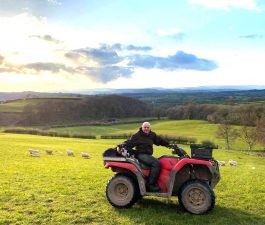
Hywel Morgan
Wales Steering Group Chair
Hywel farms at Esgairllaethdy, Myddfai near Llandovery in Carmarthenshire in the western end of the Brecon Beacons National Park. His farm includes a160-acre upland/hill beef, a sheep farm, 20 acres rented land plus 80 acres of conservation grazing and grazing rights on the adjoining common. Hywel has cut out bagged fertiliser completely, reduced bought in concentrates considerably, stopped using chemical sprays, reduced the number of wormers and pour-ons used. He has also reduced the use of plastic and makes more hay. He has created habitat corridors, pond, and manages hedges differently by allowing them to grow taller and wider lightly trimming in a rotation. Some are left to grow which will mean hedge laying or coppicing. Finally, he has established some herbal leys. He believes that working with Nature is key, not against it.
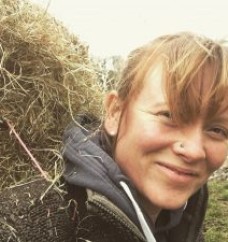
Sam Kenyon
Wales Co-Vice Chair
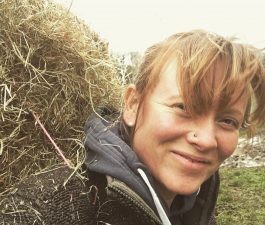
Sam Kenyon
Wales Co-Vice Chair
Although from a farming background, Sam didn’t start working in agriculture until her mid-thirties. Now living on the banks of the River Elwy in North Wales, her holding comprises of lowland fertile flood plain and ancient steep woodland. She is passionate about health, welfare and the behaviour of both livestock and wildlife. Sam believes strongly that a biodiverse and regenerative approach to farming and our soils are key to mitigating the effects of the climate crisis. By re-sowing maize fields with species-rich permanent pasture mixes as well as planting hedgerows and trees, Sam is working for soil resilience, reduced erosion, increased carbon sequestration all year round and a complete regenerative system encompassing livestock and nature.
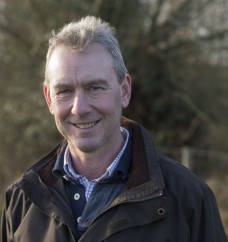
Tony Davies
Wales Co-Vice Chair
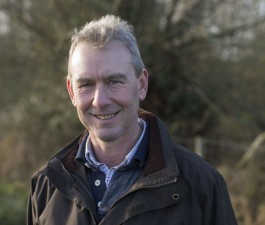
Tony Davies
Wales Co-Vice Chair
Tony has always been concerned about climate change, first installing solar panels on his off-grid farm in the 1990s. As a tenant of 680ha of upland land, he joined an environmental scheme and converted the farm to organic production over 20 years ago. Tony enjoyed this low input method of farming, the farm was also changing into a more pleasant landscape. He describes the increase in plant diversity and nature as a welcome by-product of his farming system which can also continue producing lamb, mutton and beef with little inputs. Tony lists planting 20,000 trees, streamside corridors, hay meadow reversions, heather regeneration, and new ponds as a few of his projects. More recently, he has been making and selling biochar. Tony believes the Nature Friendly Farming Network is necessary for farmers like himself to unite and gain a voice to influence future policy.
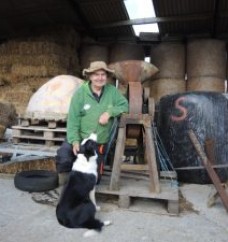
Gerald Miles
Wales Steering Group
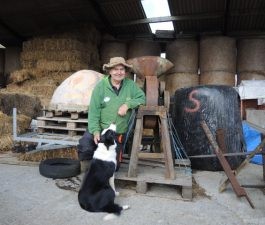
Gerald Miles
Wales Steering Group
Gerald describes himself as an Organic Farmer and resilient campaigner for Food Sovereignty and feels privileged to be a member of the Land Workers Alliance and NFFN. Gerald farms on the west coast of Pembrokeshire, and is an active campaigner against genetically modified crops and pesticides. In 2003 he drove his tractor all the way from West Wales to Downing Street to protest about GM crops and to raise support from fellow farmers.
In 2010, Gerald launched Wales’ first community supported agriculture (CSA) scheme. He believes the CSA model allows a mutually beneficial relationship between farmers and the community. The people who joined his CSA came to the farm regularly and began to refer to it as ‘our farm’. He also works to run the Llafur Ni (Our Cereals) network - a group which works together to revive rare Welsh landrace oats and share diverse grains. They also have a focus on knowledge sharing, with older farmers accompanying new entrants to Welsh cereal farming, sharing their knowledge of traditional ecological growing practices.
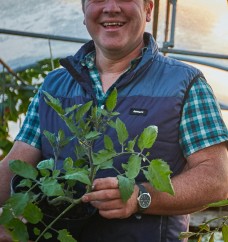
Matt Swarbrick
Wales Steering Group
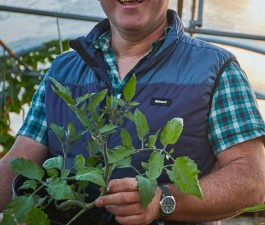
Matt Swarbrick
Wales Steering Group
Matt farms using permaculture, agroecology and holistic management which results in a very multi-layered, mixed approach to running the family's 80-acre farm, Henbant, in North West Wales. He believes that farming with nature can result in farms which produce real food and financial profit whilst also building biodiversity, soil and social capital. He thinks it is essential that eating is not seen as a necessarily ecologically negative act and that humans value their role in positively designed, regenerative ecosystems that enhance our world for both humans and nature.
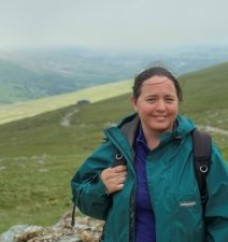
Sorcha Lewis
Wales Steering Group
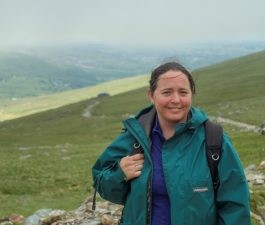
Sorcha Lewis
Wales Steering Group
Sorcha and Brian farm on a 580ha traditional family hill farm in the Elan Valley Mid Wales, part of the Cambrian Mountains. They farm native hill sheep and Shorthorn/Hereford cattle in a sustainable way which provides a wealth of wildlife that thrives in harmony with this traditional way of life. The area is popular for walkers, cyclists, families, wildlife watchers, star gazers; all which benefit from the way the farmers in the water catchment manage the landscape around the reservoirs providing an array of benefits to people, environment and wildlife as well as raising quality nature friendly food.
The farm is important for many important Welsh wildlife species that are dependent on the special habitats on farm, such as nationally important hay meadows, rhos pasture, wax-cap rich grasslands, Fridd, regenerative woodland and upland peatlands. The open hills are important for rare birds such as the golden plover, dunlin and curlew with areas where you can find large heath butterfly and water vole. The weather and topography mean that you need to farm in a way that works with all the elements; it is nature that shows us the best way to farm in such a remote landscape. Brian and Sorcha passionately believe that embracing wildlife and encouraging wildlife has made their farm more resilient and less reliant on bringing in chemicals, feed and stock.
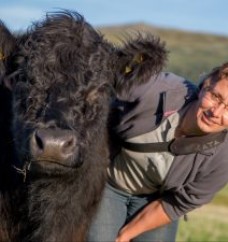
Hilary Kehoe
Wales Steering Group
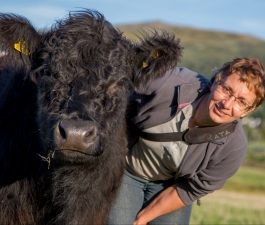
Hilary Kehoe
Wales Steering Group
Hilary and her husband farm at Tyddyn Isaf, which overlooks the Menai Straits near Bethesda. They also have mountain rights on Llanllechid Common for their Welsh Hill flock and graze Highland and Belted Galloway cattle and Manx Loughton sheep on nature reserves from Pwllheli to Bangor, Anglesey and the coast below the farm. In addition to the farm they also run a countryside contracting business with their children which incorporates grazing livestock into management of the nature reserves for the Wildlife Trust, local councils and holiday parks. Grazing animals create conditions for a range of species and habitats such as grassland waxcap fungi, breeding waders, leeches, wildflower meadows, wetlands, sand dunes and heathland. The sheep and cattle are finished slowly and are marketed through local butchers or as premium meat through local sales. Although not registered as organic the farm is run on organic principles with no fertiliser, herbicides or pesticides used.
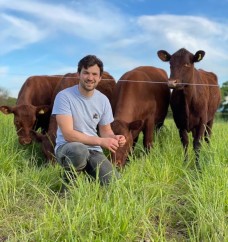
Huw Foulkes
Wales Steering Group
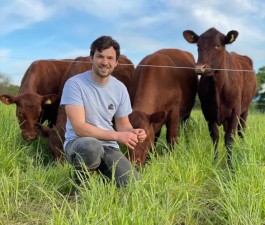
Huw Foulkes
Wales Steering Group
With his herd of entirely pasture-fed dual-purpose Red Poll cattle, Huw Foulkes of Fferm Pentrefelin takes a regenerative approach to dairy farming. In this cow and calf system, the calves remain with their mothers until they are naturally weaned, the cows being milked once a day. Huw’s first big move was to go completely organic and eliminate the use of fertilisers and chemical sprays, complemented by introducing nitrogen-fixing legumes, such as lucerne and clovers, into the farm’s pastures. Grazing management has also changed drastically, where Huw rotationally graze the cattle onto fresh grass every single day, sometimes twice a day and also mob graze. The introduction of trees onto the farm, and in particular a silvopasture trial, has also helped the farm become more nature-friendly.
Huw is passionate about a regenerative approach to dairy farming, where animal welfare and environmental impact aren’t sacrificed for large milk yields and turnovers. Engaging with the public and educating customers is important.
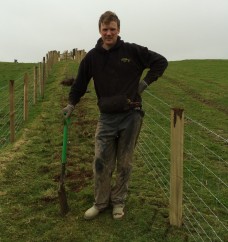
Gethin Owen
Wales Steering Group
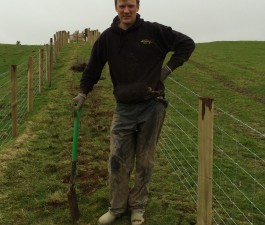
Gethin Owen
Wales Steering Group
Gethin runs a 58Ha suckler beef, sheep and cereal farm near Abergele on the North Wales coast. After becoming disillusioned with high-input, chemical methods of farming, he decided to implement a more nature-friendly approach that also benefits the environment and financial sustainability of the business. Previously, the only crop grown was ryegrass leys, with a considerable amount of artificial fertiliser being used. Now, forage production is based on red and white clover and herbal leys. Also, 6ha of unsprayed spring oats are grown every year, with the overwintered stubble providing habitat and food for large numbers of seed-eating farmland birds. Over the past 15 years, hedgerows have been coppiced and restored, and 1.5km of new hedgerows has been planted as part of the Tir Gofal and Glastir agri-environment schemes. It's a win-win-win situation - the farm is now more productive, self-sufficient, profitable, and environmentally sustainable, and it gives me a lot more satisfaction and enjoyment seeing the farm come alive with nature.
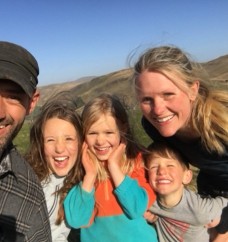
Rhodri Lloyd-Williams
Wales Steering Group
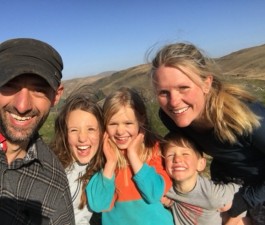
Rhodri Lloyd-Williams
Wales Steering Group
Rhodri farms at Moelgolomen in the heart of the Cambrian mountains with his parents, wife and three children. They farm hardy Welsh mountain sheep and Welsh black cattle. Moelgolomen has been organic since 1999 and has always been involved in agri-environmental schemes. Over recent times Rhodri and family have planted upwards of 80 thousand trees throughout the farm whilst also allowing existing hedges to grow tall and bushy to provide shelter for nature and stock alike. Soil health is their new focus with rotational grazing and a reduction in ploughing allowing greater root depth and better soil structure whilst the extra hedgerows also assist in slowing soil runoff and in flood mitigation.
Lamb meat boxes have been sold in recent times through their website, whilst visitors have been welcomed to the farm to stay in the treehouse holiday lets. Farming and food production are their ultimate goals, and Rhodri doesn’t see why this has to be to the detriment of nature with recent changes put in place to ultimately maintain, or perhaps even increase, production levels whilst also ensuring space is made for wildlife to thrive.
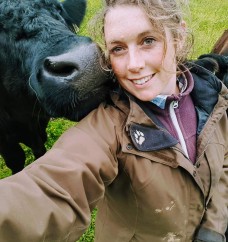
Emma Douglas
Wales Steering Group
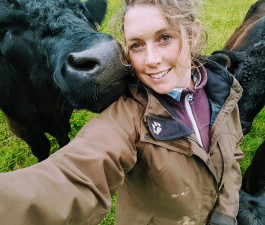
Emma Douglas
Wales Steering Group
Emma Douglas farms with her family on the Gower Peninsula, South Wales. They farm a native breed of beef cattle, which graze nature-rich land across Gower and south Carmarthenshire, selling their 100% pasture-fed, nutrient-dense beef directly to local customers, cafes and their local food hub. Emma is passionate about the role that livestock play in the ecosystem and observing how appropriately managed livestock brings rare species back to thrive on the land that they graze. Emma has a herd of Welsh mountain ponies which manage nature-rich land in conjunction with her cattle and goats. She believes that farming with nature makes sense for her, not only financially but for animal, ecosystem and human health whilst preserving our iconic Welsh landscapes and rural traditions.

